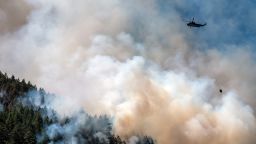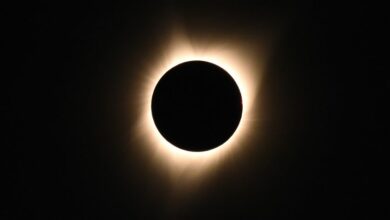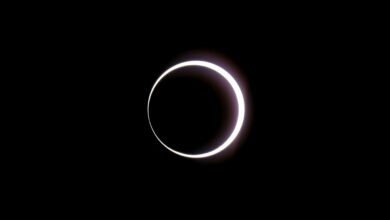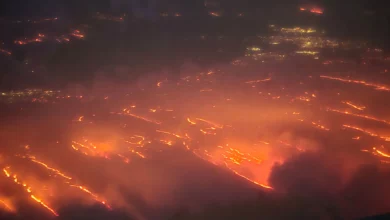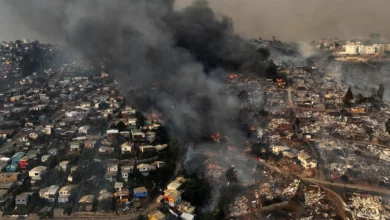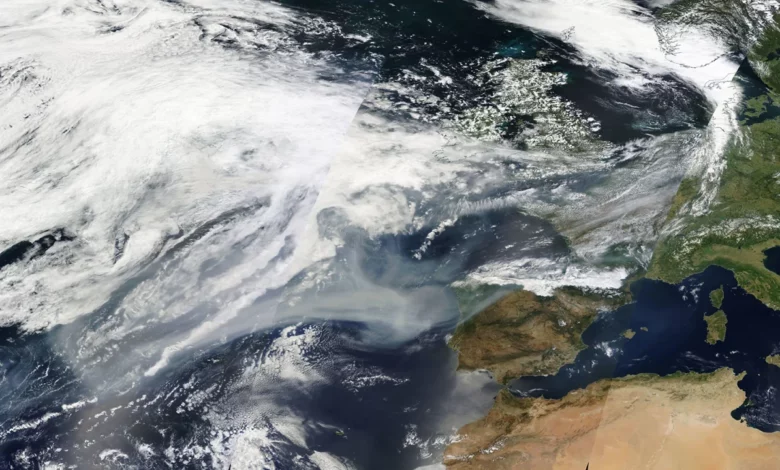
Canada has had a dramatic start to wildfire season, with at least 19,027,114 acres already charred across the country. Wildfire activity in Canada typically peaks from June to August, leaving more than half of the peak season still to come.
As a result of the unprecedented start to the wildfire season, this year has become the worst fire season on record, surpassing the previous benchmark set in 1989 for the total area burned. In 1989, at least 18,254,317 acres were burned in the country, according to fire statistics from the Canadian Interagency Forest Fire Centre.
And the smoke from the wildfires, which wrapped New York City in a cloud of smog earlier this month, has now reached as far as the United Kingdom, according to the UK Met Office.
The smoke that has made its way into Europe has done so via the jet stream – strong winds in the upper levels of the atmosphere. This means the smoke will not lead to dramatically worse surface air quality like the Northeast US experienced a few weeks ago.
“Whilst the smoke is high up in the atmosphere, it may make for some vivid sunrises and sunsets in the next few days,” the Met Office, the UK’s national weather service, wrote on Twitter.
Forecast models show the smoke lingering in the upper levels of the atmosphere over Europe for much of this week.
CNN previously reported that smoke from the wildfires reached Norway at the start of June. Because the smoke is injected at high altitudes, it’s able to stay in the atmosphere longer and travel farther distances.
Fires continue to rage across Canada
The wildfires have continued to burn across multiple provinces in Canada. There were at least 53 new wildland fires on Sunday, according to the National Fire Situation Report from the Canadian Interagency Forest Fire Centre.
Alberta had the most at 23, followed by Ontario and Quebec, which had eight each, according to the report.
On Monday, the agency reported at least 27 new wildland fires, with 16 in British Columbia.
The record wildfire season continues to impact air quality throughout parts of North America. On Friday, Environment Canada warned in a bulletin that smoke would continue to cause poor air quality in many parts of the country. In Ottawa, Canada’s capital, government air quality readings reached a high of 10 on Sunday, representing a “high risk,” before moderating Monday morning.
And in addition to sending smoke to western Europe, the fires have also resulted in plumes of smoke impacting parts of the US. Wisconsin, Michigan, and Indiana all issued air quality alerts on Monday, according to the National Weather Service.
As the climate crisis escalates, scientists expect that wildfire seasons will increase in severity, especially as droughts and heat become more common and more severe across the world.
Correction: A previous version of this article gave the wrong year for the previous benchmark of total area burned. It is 1989.
CNN’s Paula Newton contributed to this report.

